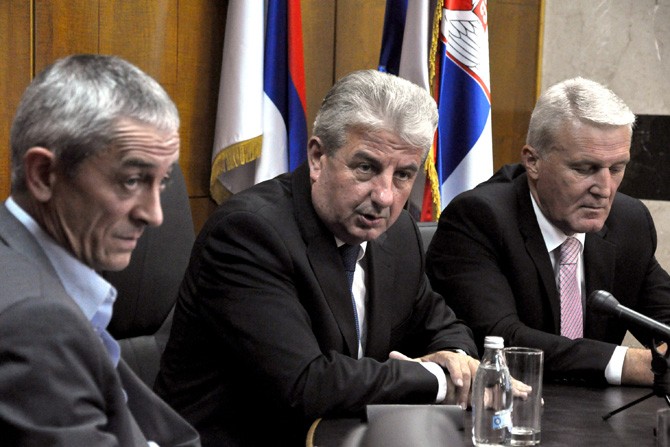
Away from the public eye: Case Jelova Gora
Secret talks between the Prosecutor’s Office and the suspect
The arrest of Darko Šarić, accused of organizing the smuggling of 5.7 tons of cocaine from Latin America to Western Europe, revealed the dark side of the top of the Serbian Prosecutor’s Office and the police. A year and a half after the dismissals of the heads of the Security and Information Agency, the documents appeared in public about the investigation conducted by this Agency on suspicion of the unlawful conduct of the representatives of the said state institutions – a secret meeting with one of the closest associates of Darko Šarić at the facility of the Security and Information Agency (Bezbednosno informativna agencija – BIA) on Jelova Gora. Audio and video recordings of that meeting have been destroyed, with no relevant explanation of those who have done that, so that the question what the highest state officials of the Prosecutor’s Office, police and BIA were doing at the meeting has never been answered, including what they wanted to hide by destroying the evidence.
Bearing in mind that the members of the Prosecutor's Office have been conducting the process against Darko Šarić, any reference to the case Jelova Gora is pre-characterized by the public as the attempt to protect the defendant and to take his side. However, if the objective is to prosecute and convict the accused of the most serious crimes, then the competences and professionalism of the people representing the Prosecutor's Office and the police are the most important. The defense of Darko Šarić tried to use the case Jelova Gora to postpone the trial and dismiss the accusations, requesting that the Court should exempt the highest representatives of the Prosecutor's Office from the proceedings. After reviewing the documents provided by BIA, the Court decided not to sustain the request of the defense. Although the Court ruled that the contents of the official notes of BIA are not a sufficient reason to disqualify the prosecutors from the trial against Darko Šarić, the fact remains that the heads of the Security and Information Agency, led by the members of the ruling party in Serbia, for some reason started the investigation against the participants at the controversial meeting, examined them and prepared an official document and, after removing the designation classified, submitted it to the Court.
The fact that the state and the competent institutions failed to react regarding the allegations contained in the official notes of BIA, prepared in order to determine why the evidence of a meeting between the representatives of the Prosecutor's Office, police and former management of BIA and one of the closest associates of Darko Šarić were destroyed, as well as what they talked about on that occasion, leaves space to move focus in the media and the general public from considering the issue of possible responsibility of the representatives of the highest state authorities, and reducing the whole case to an imputation of the defense lawyers of the accused. If, however, this is true – the question arises that goes beyond the Šarić's trial itself, and could be summarized as follows: Is BIA involved in destroying the charges against Darko Šarić?
It is interesting that after the publication of the official notes of BIA, which revealed the meeting on Jelova Gora, it was a topic in the media only for a couple of days, although it was clear that it was of public interest to examine the role of the Prosecutor’s Office and the police and to determine their responsibility, given the importance of the work they do.
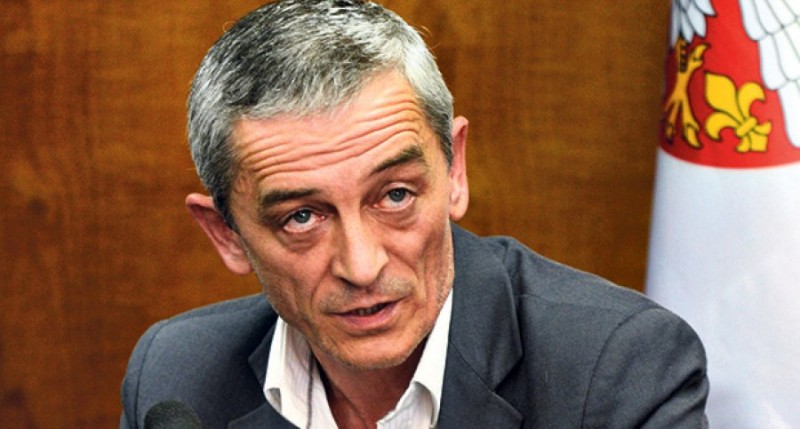
After the fall of the regime of Slobodan Milošević on 5th October 2000, democratic opposition parties came to power, led by Zoran Đinđić, the first Serbian authentic reformer. Thanks to Đinđić the country started to transform at all levels – it turned to the European Union and its values and restored its international reputation, regardless of the three-year hunt which was being conducted in the media against the Serbian Prime Minister. Đinđić was assassinated on 12th March 2003 after he and his associates had planned the crackdown on organized crime. The characteristic of such a situation was the link between the top of the criminal clan, who were convicted for the murder of the Prime Minister, with charges of war crimes and accordingly – Serbia’s obligation to extradite them to the Hague Tribunal. The suspects, however, had the stats of national heroes in the political parties opposing the policy of Zoran Đinđić, and therefore enjoyed their public support and protection.
After Đinđić’s assassination, Serbia was again in the dark period, whose main feature was – distancing from the EU, nationalist propaganda, relativization of democratic values and placing the institutions in service of achievement of this goal. From his position of the President of the Country, Vojislav Koštunica became the Prime Minister (leader of the Democratic Party of Serbia), who remained in this position for four years. Boris Tadić was elected President of Serbia in 2004. Although Đinđić’s successor, Tadić made a kind of turnover and agreed to political alliances with the harshest opponents of Đinđić. This created a so-called cohabitation government, where the Prime Minister is from one party and the President of Country from another party. Many experts of situation in that time indicate that Koštunica strategically deployed his associates in positions where he would be able to stop the investigations and direct them in opposite directions – Ministry of Internal Affairs and Security and Information Agency. This primarily related to the process of Zoran Đinđić’s assassination. Namely, immediate assassins were convicted but the political background, which included the involvement of the Cabinet of then Prime Minister Vojislav Koštunica, has never been investigated.
After an unsuccessful attempt of Zoran Đinđić to break the top of the organized crime, which had a tragic outcome, the period from 2004-2008 saw the establishment of the new pal-up between the police, crime, justice and tabloids, which escalated in the most literal way in the years to come. During that period, Montenegro withdrew from the state union with Serbia. This was the period of drastic cooling of relations between the two countries, given the great dissatisfaction of Tadić and Koštunica with such an outcome – the independence of Montenegro. Boris Tadić and Vojislav Koštunica made an agreement with regard to the personnel changes in the security sector – Rodoljub Milović was appointed the Head of the Criminal Police Directorate in 2005, and Milorad Veljović was appointed to the position of Director of Police in 2006 (before that he had been the Head of the Criminal Police Directorate), and Miljko Radisavljević was appointed to the position of the Special Prosecutor for Organized Crime. The three of them, with their associates, played the main roles in 2010 regarding the meeting on Jelova Gora with Dragan Dudić Fric, associate of Darko Šarić, charged with money laundering and cocaine trafficking.
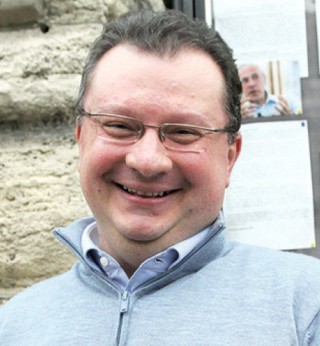
During the rule of the DS (Democratic Party) (2008-2012), the President of Serbia, Boris Tadić, headed the National Security Council, which was responsible for coordinating and directing the work of the departments (consisting of the President of the Republic and the Prime Minister, Ministers of Defense, Internal Affairs and Justice, Army Chief of Staff and directors of security services), and the position of the Secretary of the Council and President of the State Office for Coordination of Security Services was reserved for his closest associate and the Chief of the Cabinet of the President – Miodrag Miki Rakić. We would like to emphasize that the Government, which was actually ruled by Tadić, set for itself, as one of the most important tasks, the task to crackdown on organized crime and corruption. This is understandable, but also interesting from the standpoint that new elections were closer, and the arrest of Šarić, so that the current government could have a concrete result to come out with before the voters.
If we look at the way the Serbian media reported on Darko Šarić, we can see that his name first appeared in the media in October 2009, when the news agencies reported that the Uruguayan police seized 2.8 tons of cocaine on the yacht “Maui”, under the British flag, at the port Santiago Vazquez, 25 kilometers west of Montevideo. On that occasion, two persons were arrested, a Uruguayan and a Serb, who tried to transfer the cocaine from the yacht onto the ocean liner, whose final destination was Western Europe. The cargo with drug was intercepted within the scope of the joint action “Balkan Warrior” of the American Agency DEA and the Serbian BIA and the Uruguayan police. In parallel, Belgrade police arrested all the persons believed to be a part of Šarić’s group in Serbia.
In January 2010, the international arrest warrant was issued for Darko Šarić. Miloš Oparnica, Head of the National Bureau of Interpol in Serbia said in February 2010 that the police had started to deal with Šarić in 2000 for money laundering. . On 13th April 2010 the Prosecutor’s Office for Organized Crime of Serbia raised charges against Darko Šarić and 19 more suspects for trafficking two and a half tons of cocaine. On the other side, Miodrag Rakić stated in his statement reported by the media in February 2013 that the investigation against Šarić’s clan had been in progress since 2008 and that the evidence had been collected in extremely difficult circumstances and at great risk, both on the cocaine trafficking and on the property acquired through the sale of cocaine. According to his words, the data had been used in accordance with the law, exclusively for the purposes of investigation, and not for political abuse.
In the same year 2010, Šarić’s property was confiscated, and the media reported that he was one of the richest people in Serbia, although, given his power and wealth, nobody had ever heard of him before that. The fact is, however, that the accused acquired his property during the reign of Boris Tadić and Vojislav Koštunica. The value of Šarić’s property in Serbia has been estimated in a fairly wide berth – from a few dozen of million to several billion Euros. Although the indictment had not yet been filed at that time, in February 2010, according to the decisions of the Higher Court in Belgrade, the said property was confiscated on suspicion that it resulted from a criminal offense and was given for management to the Directorate for Management of Confiscated Assets until the completion of the court proceedings.
Only five days after it was officially announced that Darko Šarić had been indicted in April 2010, the meeting on Jelova Gora was organized.
STATE SECRET – JELOVA GORA
In June 2014, the Security and Information Agency declassified the documents or official notes which give grounds for suspicion that the current heads of the police and Prosecutor’s Office for Organized Crime, i.e. former heads of BIA, abused their official position, influence and power and participated in the unlawful actions. As stated in the official notes of BIA – Director of Police Milorad Veljović, Deputy Special Prosecutor for Organized Crime Saša Ivanić, as well as the dismissed Head of Criminal Police Directorate Rodoljub Milović or Slaviša Softić, employee at the Criminal Police Directorate and former members of BIA Željko Rašeta and Jadranko Petković, but also their head, then current Director of BIA Saša Vukadinović – organized, and some of them were direct participants at the meeting held on Jelova Gora on 18th April 2010 with, as it was already presented in the media, closest associate of the then fugitive Darko Šarić – Dragan Dudić Fric.
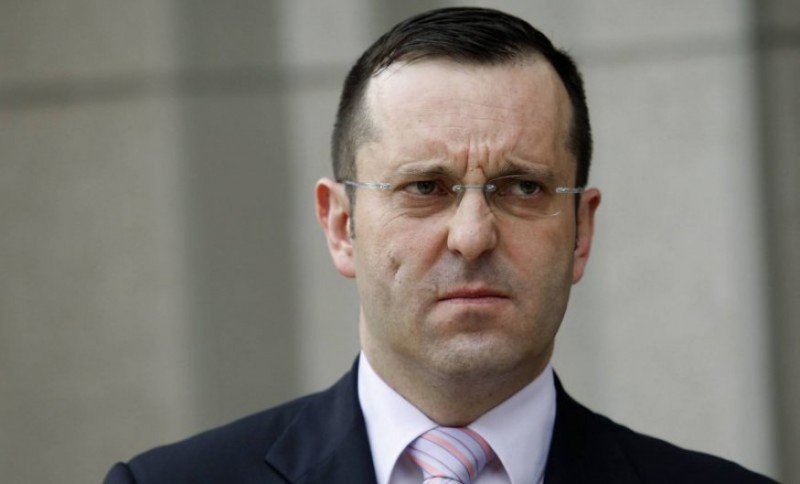
The meeting would not have been controversial, from the perspective of the claims made by the organizers and participants – if they had tried to obtain information from Šarić’s closest associate about where Darko Šarić was hiding, and if they had tried to talk him into surrendering through Dudić, or to reveal the pyramid of the organized criminal group, and to put Dudić on the list of cooperating witness – if it had not been accompanied by the following circumstances:
- the recording of the meeting has disappeared from the premises of BIA under mysterious and suspicious circumstances
- the meeting was attended by the Deputy of the Special Prosecutor for Organized Crime Miljko Radisavljevic – Saša Ivanić, who was conducting the proceedings against Darko Šarić, and was legally obliged not to meet with the closest associates of the suspect for the most serious criminal offences , but to include them in the indictment on the basis of collected evidence material.
- Dragan Dudić Fric was killed 42 days after the meeting. Dudić’s killer has been found, but the motives for the crime were largely disputable at that time.
- Prosecution puts late Dragan Dudić Fric in the indictment on 26th October 2010, regardless of the fact that from the moment of his death to the moment of indictment, late Dudić could not have committed a new criminal offense.
BIA INVESTIGATION
Within the scope of investigation conducted in 2013 by the new heads of BIA, after the change of officials in the Democratic Party, based on the suspicion that the members of the top Prosecutor’s Office for Organized Crime, police and the Security and Information Agency had been involved in illegal criminal activities, the notes were prepared which were declassified on 23rd June 2014. Upon the order of the then Head of the Agency, Nebojša Rodić, the investigation was conducted in order to reveal what had happened on Jelova Gora, because the participants, as assumed, had destroyed all the traces. A BIA operative prepared the note on the basis of information received from the participants of the controversial meeting on Jelova Gora. It is noticeable in the notes that the veracity of the said information is disputable, or that the nature thereof is unverified, indirect and alleged. If we engage in a freer interpretation and consideration of this document, we could not only characterize it as the statements of participants but also as a list of unfounded allegations stated on that occasion. What, however, can be observed as the only undisputable and factual thing is the fact that the whole case was documented in video and audio recording, which was destroyed a year later. The exact and real motives for the destruction of the video and audio recordings remain undetermined for the time being, but it is suspected that this was done in order to hide the traces of illegal actions and conversations.
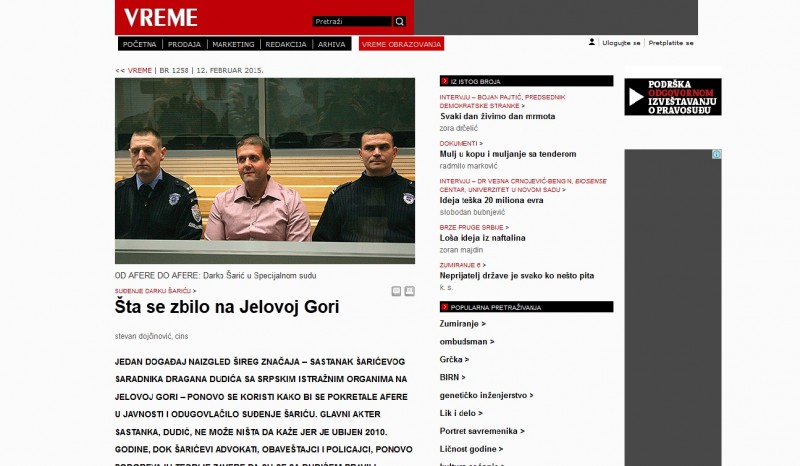
Although it is noticeable that the BIA operatives, who prepared the note, make material errors, and one of them is, for example, that it is unknown who and why killed Dragan Dudić Fric, regardless of the fact that the killer was then fully convicted and imprisoned, we cannot deny the intention of the BIA heads to initiate the investigation of suspected lack of legality and legitimacy of actions of representatives of the prosecution, police and former BIA heads at the meeting on Jelova Gora.
BIA representatives who attended the meeting with Dudić were interrogated during the term of the previous Director of BIA Nebojša Rodić in mid-2013. The documents contain the official notes on the statements of Ivica Petrović, former Chief of Operations of BIA and Deputy Director of BIA Jadranko Petković, members of the then third BIA management, Rodoljub Milović, former Head of the Criminal Police Directorate, as well as with another participant whose identity cannot be concluded from the documents. All notes are, as it may be concluded, addressed to the Deputy Chief of Operations of BIA Jovan Drobnjaković who received the same.
Four participants at the meeting with Dragan Dudić Fric have more or less similar views of the same event, and as stated in the notes, some of the testimonies are questionable and unreliable. Their claims that the aim of the meeting was to negotiate with Dudić the status of cooperating witness or his handover of Šarić, are clearly questionable in the BIA documents, what was the motive of then newly elected management of the Security and Information Agency to investigate the event which occurred in April 2010. This primarily relates to the disappearance of DVD and CD recordings of the meeting from the premises of BIA, which would themselves directly testify what and in what way the representatives of BIA, Prosecutor’s Office and police talked to the then well-known associate of fugitive Šarić. The notes mention the writings of Montenegrin press that the CD with audio recording of the meeting was sold in that country for one million Euros.
CIRCUMSTANCES, CONTEXT AND ACTORS
Before a detailed presentation of the entire contents of the documents, which had been designated as classified up to six months ago, and which were submitted to the special department (for criminal offenses of organized crime) of the Higher Court in Belgrade, where the proceedings against Darko Šarić have been in progress – we will indicate the key actors and circumstances, which determined this, almost unknown to the public and, it seems, important event. First of all, if we bear in mind that this is about the people who continue to hold public offices, with no indications that the authorities could deal with their responsibility in this case. Please note that the Darko Šarić’s attorneys, based on the official notes of BIA, sought in February 2015 the exemption from the process of the Special Prosecutor Miljko Radisavljević, Deputy Special Prosecutor Saša Ivanić and the Republic Public Prosecutor Zagorka Dolovac for doubts as to their impartiality. Ivanić declared that document as a forgery.
All requests for exemption were rejected, and no appeal is allowed against the decision on their rejection. The request for the exemption of the Deputy Prosecutor for Organized Crime Saša Ivanić was decided upon by the Prosecutor’s Office for Organized Crime, and the decision was signed by the Prosecutor for Organized Crime Mijko Radisavljević whose exemption had also been requested. As stated in the rationale to the decision, the request for Ivanić’s exemption fails to specify the circumstances which could cast doubt regarding the impartiality in action of the Deputy Prosecutor.
The request for exemption of the Republic Public Prosecutor Zagorka Dolovac was decided upon by the State Prosecutorial Council. The request was rejected as inadmissible because it had been filed contrary to the provisions of the Law on Criminal Procedure, because Dolovac failed to act in the subject case or give instructions, and the request fails to specify the evidence and circumstances which could account for the reason of exemption, and the request was obviously aimed at delaying the procedure.
The request for the exemption of the Prosecutor for Organized Crime MIljko Radisavljević was decided upon by the Republic Public Prosecutor. The Decision was signed by Zagorka Dolovac, whose exemption had been requested by Šarić’s defense. The request was rejected as inadmissible, and the rationale states that it has been determined that the defendant’s defense failed to provide evidence for the existence of some of the grounds for exemption, or the existence of circumstances which raise doubts regarding the impartiality in the conduct of the Prosecutor for Organized Crime, as well as that the allegations of the Defense that Dudić spoke affirmatively of Šarić fail to account for evidence, or the existence of circumstances which raise doubts regarding the impartial conduct.
However, according to the official statements of BIA, Milorad Veljović, Director of Police, is one of the organizers of the meeting between the members of the prosecution, police and BIA on Jelova Gora held on 18th April 2010 with Dragan Dudić Fric. In addition to the then Head of the Criminal Police Directorate Rodoljub Milović (dismissed in June 2014), the meeting was attended by the Deputy of the Special Prosecutor for Organized Crime Miljko Radisavljevic – Saša Ivanić, who has been conducting the process against Darko Šarić. However, the law obliged the prosecutor Ivanić to charge Dudić at that time based on the collected evidence material. Namely, in 2010 at the time of the meeting, and after the operation Balkan Warrior in October 2009, the police and Prosecution already had the scheme of Šarić’s associates including Dudić. The law forbids meetings between the representatives of the Prosecution and the suspects of most serious offences at the moment when they have the sufficient quantity of evidence for an indictment. Therefore, there is a legal obligation to prosecute the suspect, and not to negotiate with the same.
This is prescribed under Article 6 of the Law on Criminal Procedure “Legality of Prosecution”. . „The Public Prosecutor is required to conduct criminal prosecution where there are reasonable grounds for suspicion that a criminal offense has been committed or that a person has committed a criminal offense prosecutable ex officio”, prescribes the law. Moreover, the same Article of the Law prescribes that “the Public Prosecutor and the police are required to impartially clear up possible suspicion about the criminal offense in connection with which they are conducting official activities, and to examine with equal attention both the facts against the defendant and the facts in his favor”.
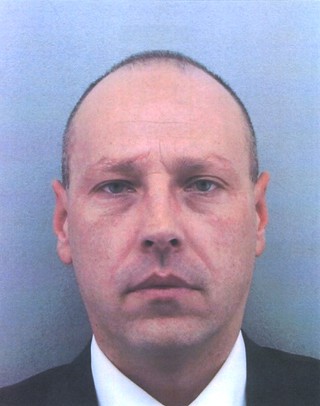
This raises the question why Saša Ivanić, Deputy Prosecutor for Organized Crime and the Chief Prosecutor in the case against Šarić and former Head of the Criminal Police Directorate Rodoljub Milović met with Dudić. Did the Prosecution and why did they trade with raising the indictment against Dudić?
One of possible answers is that the state representatives met with the associate of Darko Šarić in order to negotiate the possible granting of the status of cooperating witness. However, in order to grant the status of a cooperating witness, the person must be arrested first and must confess to committing a criminal offense and request to be a protected witness in a certain case. Dudić at that time did not meet any of the above conditions. Dudić was murdered on 30th May 2010, and the indictment of the Prosecution for Organized Crime was raised even two years after that – in 2012. Despite the fact that from the time of the meeting between the state representatives with Šarić’s associate, to the moment of raising the indictment, there was no new criminal offenses which Dudić could have been charged with, for the simple reason that Dragan Dudić Fric was already dead. The Prosecution, therefore, had no evidence while Dudić was alive. The question arises why they waited for almost three years to raise the indictment against the dead person.
The recordings of this meeting were deleted, as we have already mentioned on several occasions, and the evidence of their existence is the statement of the operative Ivica Petrović who, as it can be seen from the notes, has reportedly deleted the same during the arrangement of documentation.
Before the detailed inspection of the BIA documents concerning to this case, it is also important to mention that soon after the arrest of Darko Šarić, the Serbian Prime Minister Aleksandar Vučić, based on the proposal of the Minister of Internal Affairs Nebojša Stefanovic, together with four more heads of police, dismissed Rodoljib Milović from the position of the Head of Criminal Police Directorate. The public, however, is still left without the answer to the questions why Milović was dismissed, and additional confusion was caused by the Prime Minister’s statement that “an honest policeman” was dismissed. This has opened the space for speculations in the public that arrested Darko Šarić actually influenced the top state authorities to dismiss Milović because in some of his first court appearances, the defendant made accusations against Milović that he had framed the procedure against him, calling him on this occasion General Papaya.
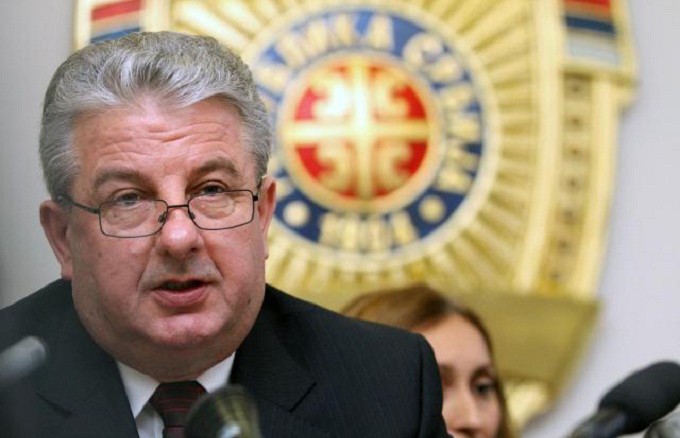
During the dismissal of Milović, the Prime Minister said that the Director of Police Milorad Veljović should also be dismissed but that would not be done because he was appointed after being selected at the competition. Veljović is, however, even today, eight months after the purges in police, its Director and his dismissal and responsibility, regardless of the fact that the BIA documents which raise questions about his role in the meeting held on Jelova Gora have been declassified, is subject to no mention.
Another aspect of the story about the meeting on Jelova Gora is, apparently, important for the full understanding of the entire case, and concerns the relationship of the Serbian state, its highest officials and holders of the key functions in prosecution and police towards Montenegro. The Government the Democratic Party of Boris Tadic was characterized by a tense and unneighborly relationship with the authorities of the neighboring country, or with the Prime Minister of Montenegro Milo Đukanović. Serbian media repeatedly reported on how Đukanović was a criminal and how Montenegro was a mafia state . With no intention to defend against such a trend but only to indicate the context, it is necessary to point out that the official notes, whose detailed presentation is given in the text below, contain the statement of the participants in the meeting that Dudić allegedly pointed to the “pyramid” of the bearers of criminal activity among the highest officials in Montenegro, stressing that Milo Đukanović is in the second place in that hierarchy while Darko Šarić is located a few positions behind Đukanović. However, as it can be concluded from the statements given by the participants at the meeting on jelova Gora, but also from the media announcements which were not followed by specific evidence, there is an intention and expectation that Dudić could accuse the top Montenegrin authorities as the main actors in the criminal clan.
That is what the accused Darko Šarić spoke during the trial. Answering the question of the judge Siniša Petrović whether he had seen Dragan Dudić Fric after the meeting on Jelova Gora when Dudić had met with the representatives of BIA, Ministry of Internal Affairs and the Prosecution, he replied affirmatively. “We met four days after that. He told me that they wanted me to accuse the Montenegrin government and one businessman, who has been prosecuted here, and I don’t want to mention his name. He is close to the authorities of Montenegro, such as Rodoljub Miša Radulović, with Ivica Dačić. He told me that they wanted me to talk about Prva Banka from Podgorica, but I was offered all that through an informant and I don’t know how to prove it”, said Šarić.
BIA OFFICIAL NOTES OF THE MEETING ON JELOVA GORA
In June 2014, pursuant to Article 5 of the Law on Security and Information Agency and Article 21 in connection with Article 105, Paragraph 1 of the Law on Data Confidentiality, adopted the decision on declassifying the information contained in the BIA documents related to the meeting on Jelova Gora.
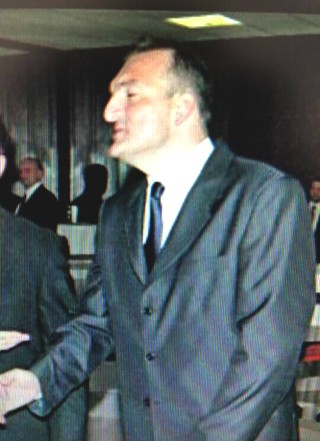
In the rationale to this decision , Director of BIA states that the Serbian Constitution, Law on Public Information, Law on State Administration and the Law on Free Access to Information of Public Importance stipulate the obligation of public authorities to inform the public of their work, especially of the issues which particularly interest the public and citizens. Based on the conducted procedure and having inspected the request and contents of documents containing the data which provide the answers to the questions raised by journalists, the decision on declassifying the documents has been adopted. It has been estimated that these documents, in addition to providing the answers to the journalists’ questions, also provide answers to the interest shown by the Serbian general public for this case because some media published fragmented and incomplete data some of which did not correspond to the actual state of affairs. In reaching this decision, the circumstance related to the need to timely and truthfully inform the public in that particular moment, through complete data based on facts, was particularly taken into consideration. It was estimated that declassifying would not jeopardize the security, economic or defense interests of particular importance for Serbia and for the operations of BIA.
1 – Official note which relates to video and audio documentation of contacts between the persons in the special purpose facility.
Based on the oral request (the note does not show whose) and with approval of the Head, also unknown person, the measure of secret video and audio documenting of the contact made between the person and the representatives of the Prosecution for Organized Crime was impleented on 18th April 2010 at the special purpose facility on Jelova Gora. On this occasion, the inspection of the contents of the mobile phone of a person of security interest was performed. The material, which comprised two DVDs and one CD, was sent on 19th April 2010.
2 – The other document states that the official note was sent to the Deputy Chief of Operations personally and that it related to the issues of operational actions of (whose name cannot be seen in the note) in order to have it included within the file of the said operational actions. It was written three years later upon the order of the new Heads of BIA. The note was prepared on the basis of the statements of suspected actors who communicated their views of the meeting on Jelova Gora to the new investigators.
The official note on the late Dragan Dudić Fric dated 19th June 2013 contains the information about Dudić, his murder and the meeting on Jelova Gora.
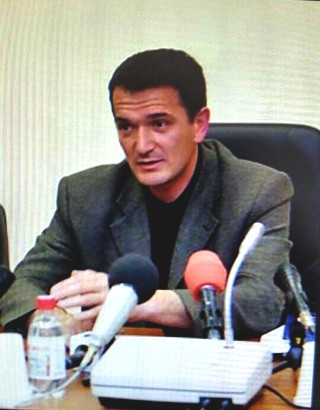
It states that Dragan Dudić, also known as Fric, a businessman from Kotor and one of the most trusted men of Darko Šaric was murdered on 30th May 2010 in the restaurant “Moka” in Kotor. As stated, according to the unconfirmed information, the liquidation of Dudić was well designed “in a way that an unidentified person killed him due to the allegedly lascivious looks which Dudić cast to the girlfriend of the unidentified killer”. The unidentified person shot and killed Dudić and then left in an unknown direction. As it has also been added, it should be pointed out that at the moment of liquidation Dudić was in the company of his wife, and, due to this fact among other things, the reason for an armed attack was at the very least illogical”.
As written, the BIA findings point to the fact that in April 2010, the former members of the 5th BIA Directorate (now 8th Directorate) transferred Dragan Dudić Fric by motor vehicle from Montenegro to the territory of Serbia and took him to the premises of the special purpose facility on Jelova Gora, where the Chief of BIA, Ivica Petrović, talked with him. As added by the operative, there is a possibility that, besides Petrović, another member of BIA, engaged in the subject issue, participated in the talks with Dudić. On this occasion, as stated, the members of the 3rd BIA Directorate (now 7th Directorate) were engaged for the purposes of audio-documenting.
“Based on the unverified indications, Dudić agreed to become a protected witness in the court proceedings conducted against the organized criminal group of Darko Šarić through the competent instances of the Republic of Serbia”, says the note.
The same note, prepared subsequently by the unnamed BIA operative on the basis of indirect information or by paraphrasing the statements of the participants at the meeting, states that during the meeting Dudić allegedly pointed to the “pyramid” of the bearers of the criminal activities at the top management of Crna Gora, stressing that Milo Đukanović holds the second place in that hierarchy, while Darko Šarić is located a few positions behind Đukanović.
However, it is not clear why the operative who compiled the note failed to mention the identity of the people directly behind Milo Đukanović and in front of Šarić in the pyramid of the clan, or why the persons from whom he took the statements failed to mention that.
This document contains the statement that the CD with the audio recording of the said contacts on Jelova Gora disappeared in a mysterious way and that there was no written record of the contents of the talks between Dudić and Ptrovic. “Apparently, the subject audio recording was sold in Montenegro for one million Euros”, reads the note.
The logical question to be asked here is how the DVD came to Montenegro when Ivica Petrović claims in his statement given to BIA within the scope of investigation that he destroyed it when arranging his documents. In other words, there is absolutely no possibility that the DVD and CD were given to anybody.
The remark to the note states that the information on the event on Jelova Gora was mostly obtained indirectly, i.e. by paraphrasing the statements (of the person whose identity is protected in this record) who conferred with some members of BIA but also with other persons outside BIA.
It was also added that, through the engagement of the 7th Directorate, BIA came into possession unequivocally confirmed information that two members of this Directorate (whose identity is protected) provided video and audio surveillance of the premises at the special purpose facility on Jelova Gora where the interview with Dudić was conducted attended by Ivica Petrović and the officer of the Prosecutor’s Office for Organized Crime – Saša Ivanić.
“Audio and video surveillance of the subject interview was performed from the next room by the then Deputy Head of BIA Department, late Željko Rašeta and the Chief of Criminal Police Directorate of Serbia, Rodoljub Milović”, says the remark to the note. It is also stated that the members of the 7th Directorate performed the said activities on the basis of the oral order of Željko Rašeta, who was delivered two DVDs and one CD with the video and audio recording of this event after the end of the contacts.
“The operating imperative for further engagement on locating and processing the criminal group led by Darko Šarić, means the undertaking of appropriate methods and actions to shed light on the above event related to Dragan Dudić Fric. The above said is particularly important for the segment of counterintelligence protection of the members of the Agency, clarifying the initial and compromising information regarding the potential activity of certain members of the Agency, as well as the possible outflow of information from BIA, and essential clarification of the modality and the method of getting in contact with the members of the Šarić clan”, says the end of this Official note.
3 – Official note 26th June 2013
This note was made based on the interview with a person whose name cannot be seen in the record. The meeting with this person was held on 26th June 2013 in order to clarify the nature and character of the contact Dudić had had with certain members of BIA.
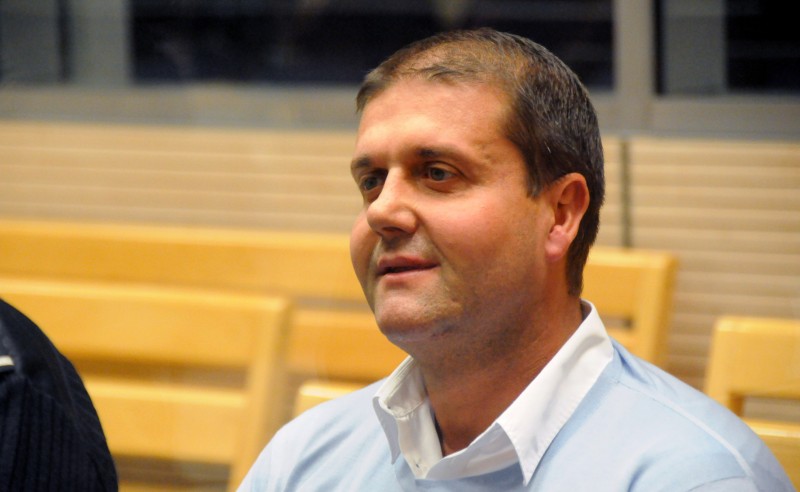
As stated in the record, this person stated that he had started the initiative for the contact with Dudić. He did not want to disclose the sources of his information even at the cost of disciplinary responsibility. Namely, this person indicated that in the first half of 2010 he came in contact with Dudić and that several weeks before the meeting with Dudić he had informed the then director of BIA Saša Vukadinović of the possibility for organizing the meeting.
According to the data from the record, in the second half of 2010, that person received the written order from the then Head of Department Ivica Petrović to proceed with creating the operative conditions for a safe transfer of Dudić to Jelova Gora. He received the order to contact Milorad Veljović, Director of Police, by phone, who gave him on that occasion the telephone number of a certain member of the Ministry of Internal Affairs from Prijepolje, who was supposed to provide logistics support in a safe transition to the territory of Montenegro. The operative went on a journey in the official car with false registration plates. At the order of his superiors, in morning hours two operatives were taken by the member of the Ministry of Internal Affairs by alternative routes to the border with Montenegro near Priboj where Dudić was waiting for them with the members of his personal security. The operatives took over Dudić and transported him to Jelova Gora by the official car without the members of his security. They came to Jelova Gora around noon, says the Official note. When they came, Deputy Chief of Department Željko Rašeta ordered the operatives to search Dudić, after which he was taken to the suite upstairs. In addition to Rašeta, the operative states that he knows that the then Chief of Department for Special Purpose Facilities whose name is protected in the record was present at the facility, then Advisor to the Director of BIA, Jadranko Petković, member of the then 3rd Directorate of BIA and several unknown persons who are known to him as the member of the Prosecutor’s Office for Organized Crime of Serbia, high-ranked member of the Ministry of Internal Affairs of Serbia as well as certain members of BIA. As stated, the operative had direct insight into certain segments of the interview, whereby he knows that the Jadranko Petković and the above members of the Prosecutor’s Office and the Ministry of Internal Affairs of Serbia directly participated in the interview, that the interview was audio and video documented and that the members of the 3rd Directorate of BIA were responsible for that, as well as that Željko Rašeta was listening to the interview all the time from the adjacent room. The operative, as stated, is not familiar with the details of the interview which, according to his estimate, lasted for about two hours.
After the meeting ended, the BIA operatives took Dudić back to the border with Montenegro using the same route and handed him over to the members of his personal security. The record states that soon after the meeting the operative confirmed to the Director of Police Milorad Veljović, with whom he was on friendly terms, that the interview with Dudić had been recorded, which produced a surprising reaction from Veljović, but the said was later confirmed by Saša Vukadinović, former Director of BIA.
The operative, as stated in the record, “estimates that the murder of Dudić was largely related to his contacts with the Serbian investigative and judicial authorities, and that some of the persons involved in the said event disclosed the contact with Dudić and received adequate financial compensation for that”.
The record states previously determined facts:
- Contact with Dudić was held on 18th April 2010 at the special purpose facility on Jelova Gora
-There is no written document on the said contact, or order in written form.
- Contact with Dudićt was audio and video documented (there is a document of former 3rd Directorate of BIA stating that the content of interview with Dudić was recorded on two DVDs and one CD).
- In the period from 14th April to 20th April, Saša Vukadinović, together with a person whose name is protected, stayed in Washington, the USA.
4 – Official note dated 1st July 2013 relates to the meeting with Ivica Petrović, former Chief of Department of BIA, and at the time of the interview, member of the 11th Directorate of BIA, which was held on 27th June 2013.
Petrović stated that a few days before establishing the contact with Dudić, the planning of the implementation of the said activities had started, and that the order for the said was almost definitely received from the former Director of BIA Saša Vukadinović, but he did not remember in what form and in what way he had received the task from the above mentioned to organize the meeting with Dudić. Also, Petrović emphasized that due to the character of the said contact with Dudić, as well as due to the potential data which would arise from the meeting with him, he took the preparations for the meeting very seriously. According to Petrović’s statements, as stated in the record, the original idea was to get in contact with Dudić abroad, but that idea was rejected. The option of holding the meeting in the area of Mount Zlatibor was also considered, primarily due to the proximity of Montenegro and conspiracy nature of the contact.
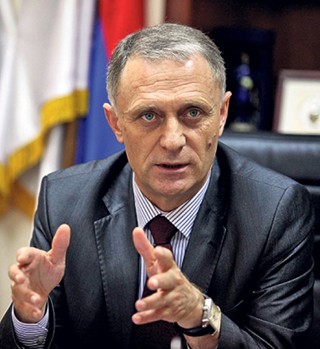
“Petrović indicated that he can claim with certainty that the information about a possible contact with Dudić came from the Director of Police Milorad Veljović, who gave the signal for the implementation of the contact, and also guaranteed the absolute discretion,” says the record.
As stated, in addition to the fact that the members of the former 5th Directorate of BIA (now 8th Directorate) were engaged to transfer Dudić, Petrović was not sure about the other possible actors in the said event, emphasizing that he could not be sure whether he had engaged Željko Rašeta, Jadranko Petković or Milan Letić for those purposes, or whether Rodoljub Milović or Slaviša Sofić attended the event on behalf of the Ministry of Internal Affairs of Serbia, and also whether Saša Ivanić or Miljko Radisavljevic were present on behalf of the Prosecutor’s Office.
Petrović expressed reserves regarding the possible location of the contact with Dudić, indicating that it could sooner be a special purpose facility on Zlatibor than the special purpose facility on Jelova Gora.
Explaining the course of events, Petrović emphasized that two persons, whose names are protected in the record, took Dudić to a special purpose facility through the alternative border crossing with Montenegro, where the members of BIA, Ministry of Internal Affairs and the Prosecutor’s Office met him and had an interview with him. Petrović stated that the interview with Dudić lasted for a couple of hours, that it was video and audio documented, but that the audio recording was of poor quality.
“As for the very content of the interview, Petrović could not clearly confirm whether he had access to the audio and video recordings or whether someone recounted the conversation to him. He pointed out that the conversation was largely below his expectations and with no important details related to the activities of the “Šarić Clan” from the standpoint of security. The whole statement of Dudić, according to the judgment and impression of Petrović, but without going into detail, was reduced to the Dudić’s attempt to “feel the situation” related to the Serbian Prosecution, to abolish his role in the affairs of “Šarić Clan” and to even, after being directed and instructed by Darko Šarić himself, get in contact with the judicial and investigative authorities of Serbia.
Petrović did not bring the murder of Dudić into connection with possible disclosure of his meeting with the members of the state authorities of Serbia, and the confirmation for that Petrović had allegedly received from the police and investigative structures of Serbia and Montenegro.
When it comes to the audio and video recordings of this meeting which were submitted to him, Petrović “emphasized that during the arrangement of his documentation he destroyed those recordings, or that there was absolutely no possibility that the DVD and CD had been given to anyone”. In this regard he was ready to undergo the polygraph testing.
The remark to this note states that during this interview Petrović was confused, scared and dishonest interlocutor, because he only gave the information of a general nature, justifying his own forgetfulness by time distance from the meeting with Dudić. As said in the record, certain concretizations were directed towards the information which is not easily verifiable, while with regard to the information and knowledge that could be subject to deeper analysis, he remained absolutely incomplete and disingenuous. This document notes that Petrović very well recalls and describes in detail the events which do not specifically relate to the contact with Dudić and which had happened earlier. The said is particularly surprising, says the note, given according to the function he held at that time, Petrović was the holder of the operational activity aimed at preparation and the method of implementation of the contact with Dudić. In certain situation, Petrović tried to minimize the significance of Dudić within the “Šarić Clan” at the same time emphasizing, according to his operational information, the role of Rodoljub Radulović, also known as Miša Banana.
5 – Official Note dated 10th July 2013
The interview about the meeting with Dudić was also performed with the retired member of BIA, Jadranko Petković on 9th July 2013. Petković said that he had been directly involved in the interview with Dudić. He stated that, in addition to him, Saša Ivanić as a representative of the Prosecutor’s Office and Slaviša Sofić as a representative of the Ministry of Internal Affairs had also been directly present, while Željko Rašeta and Rodoljub Milović monitored the course of the interview from the next room via video surveillance.
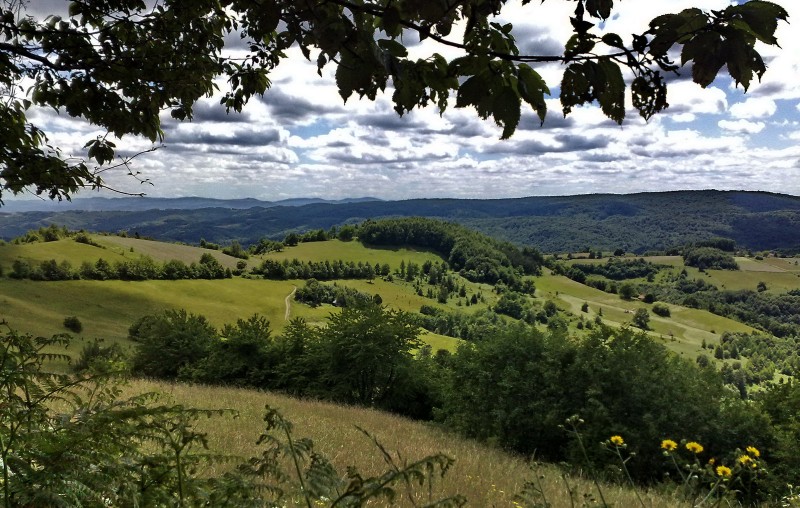
According to the Petković’s allegations, the fact that Dudić initiated the contact with Serbian security structures meant the involvement of the officials from the judicial system, or the Prosecutor Saša Ivanić, who was the only person competent to offer certain benefits to Dudić, as a potential protected witness, depending on the specific offers.
Petkovc stated the opinion that the entire activity related to the contact with Dudić, according to all criteria, and particularly on the basis of the principle of conspiracy, involved too many people who were operationally engaged in establishing the contact and in the course of the interview with Dudić itself.
The contact with Dudić, according to Petković, failed to meet the expectations given he realized at the initial phase of the interview that Dudić had not come in order to offer something or possibly get something in return, but he had established the contact in order to “feel the situation” in an adequate manner, to have insight into the actors and representatives of Serbian prosecuting authorities engaged in the duties related to the opposing and prosecution of the organized criminal group of Darko Šarić.
Having emphasized that he did not significantly get involved in the actual interview with Dudić, given the course and flow of the interview was guided by the Prosecutor Ivanić, who presented to Dudić all what would be indicated by any of the Present, Petković , paraphrasing Dudić’s allegations, emphasized that Dudić in a certain manner avoided saying anything particular, both about himself and about the reasons for making the contact, and also on other persons in the “Šarić Clan”.
Petković also stated that the meeting had been recorded both in audio and video form, but that he did not ask to see the recordings given he had been the direct participant of the interview whose content failed to have interesting character from the standpoint of security.
He also emphasized the fact that he was not familiar with the way in which the contact with Dudić had been established, and that he had received the order to participate in the interview from the then bosses Ivica Petrović and Željko Rašeta.
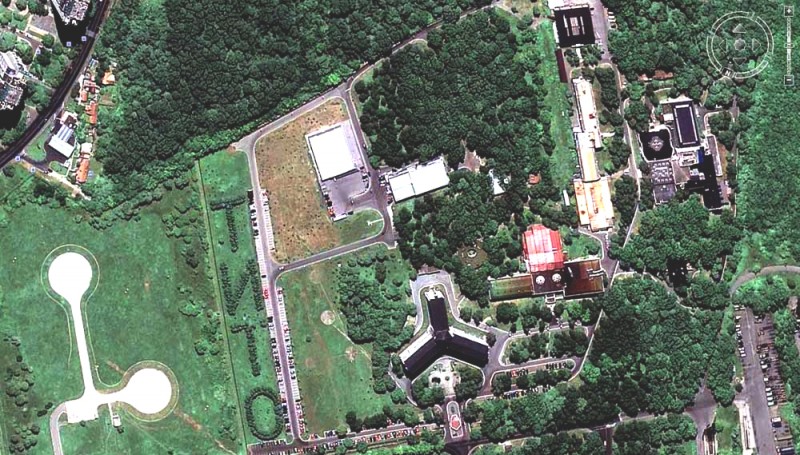
Petković, as stated in the note, indicated that the operational engagement regarding Darko Šarić in the first half of 2009 was to a great extent coordinated with the Ministry of Internal Affairs of Serbia and that only for those reasons the original job related to the interception of the transportation of narcotics organized by the “Šarić Clan” had been “disclosed”. “Naming in that sense the former Chief (whose name is protected in the note), Petković stated that the subject person had almost described in a certain TV show the transport of narcotics by commercial transoceanic vessels. Also, he mentioned the links between the person whose name cannot be seen in the note with Bato Đurović who comes from Pljevlja and without whose knowledge and approval he could not have participated in the above mentioned TV show. As a curiosity, Petković stated that the Ministry of Internal Affairs had been at that period engaged in covering this part of the “Šarić Clan” which relied on Mišo Radulović, and that, among other things, the original interception the cocaine transport from South America was “disclosed”. At a later stage, the job related to covering Šarić’s transport of cocaine had been closed both at the level of Prosecution and BIA, which resulted in the seizure of 2.5 tons of cocaine in Uruguay”, says the note.
The remark to the note says that Petković was cooperative and competent interlocutor during the meeting in relation to the data available to him.
6 – Official Note 17th July 2013
On 11th July 2013 BIA conducted interviews with the Deputy Criminal Police Directorate Radoslav Đinović. As stated in the official note, Milović pointed out that Dudić tried to get in contact with him in 2009 through Milović’s kinship from Montenegro. However, the contact never occurred because the Director of Police Milorad Veljović told to Milović that he would conduct an interview with Dudić with the assistance of BIA and the Prosecutor’s Office. After that Milović informed his kinship to terminate all contacts with Dudić. Milović also emphasized that the meeting with Dudić had been preceded by written communication between him (Milović) and the Deputy Prosecutor Saša Ivanić. Milović stated that the mediator of the meeting had been a certain female person whose identity he did not want to reveal. He did not specify the nature of the relationship between that female person and Dudić.
According to Milović’s words, Dudić was taken to the meeting on Jelova Gora by a member of BIA whose identity was unknown to him. According to his words, the meeting with Dudić was attended by Saša Ivanić, Slaviša Sofić and Jadranko Petković, while he and late Željko Rašeta followed the course of the interview from the next room through video surveillance. Milović stated that Dudić had explained the hierarchy inside the “Šarić Clan” in great detail and the method of its functioning, as well as the organization of procurement, transfer and distribution of narcotics. According to Milović, Dudić had also explained his role and activities he had undertaken as a member of the clan.
The information stated by Dudić, according to Milović’s words, had completely matched the information and events which had actually happened and which had been known to Milović through his operational engagement. Milović also stated that all the time during the interview Dudić had expressed interest in his status at the Prosecutor’s Office and possible benefits he could get. However, Milović says that the topic of the interview was not in any moment related to the settlement and possible handover of Darko Šarić. According to Milović’s statements, Dudić received no guarantees from Ivanić related to his status, and at the end of the interview they agreed to continue future contacts in writing.
Milović stated that he did not know where the recordings of the documented interview were, but that he had unverified data that Dejan Jovanović called Keka, with the help of a certain person from the Ministry of Justice, had come into possession of the disc which had later been submitted to the “Šarić Clan”. According to Milović’s opinion, that was the very reason why Dudić was killed immediately after the meeting. Milović stated that he had once met with Brano Mićunović, with whom he had discussed the conditions of possible surrender of Darko Šarić to the Serbian judicial authorities. As stated, Mićunović requested that the judicial authorities of Serbia and the Special Prosecutor’s Office should come with the actual duration of imprisonment to which Šarić would be sentenced, in case of his voluntary surrender. Milović pointed out that Mićunović requested firm guarantees from him that possible agreement would be respected and threatened to assassinate the Director of Police Milorad Veljović if the agreement was not respected.
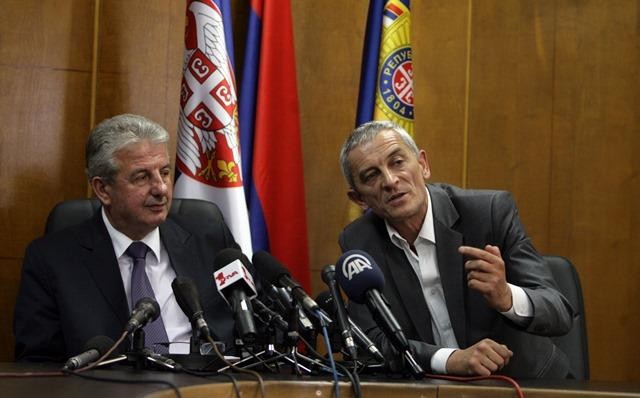
Milović says that after that he met the Special Prosecutor for Organized Crime Miljko Radisavljevic from whom he requested the conditions and firm guarantees regarding the term of imprisonment and other benefits in the event of voluntary surrender of Darko Šarić. However, Milović ascertained that Radisavljevic was not particularly interested in the implementation of the subject agreement on surrender and that he had never submitted to him the conditions and guarantees which would result in further negotiations and possible voluntary surrender of Darko Šarić. Milović stated that after that he had never met Mićunović again because he had nothing to offer.
The remark to the note says that “Milović was cooperative and competent interlocutor during the interview. However, it is added that Milović’s statement should be taken with a pinch of salt”.
It can be concluded that the interview with the Chief of Criminal Police Directorate Rodoljub Milović significantly differs from the statements of other participants because only he said that the interview with Dudić had been interesting and useful, while all others claim that Dudić had not said anything significant and that he had only questioned what the Serbian police and Prosecution had as evidence.
MEDIA REACTIONS TO PUBLICATION OF BIA FINDINGS ON JELOVA GORA
Based on the BIA notes of the meeting on Jelova Gora, in February 2015, the attorneys-at-law of Darko Šarić requested the exemption of the acting Prosecutor Saša Ivanić, Special Prosecutor for Organized Crime Miljko Radisavljević and the Republic Prosecutor Zagorka Dolovac from the proceedings conducted before the Special Court against Darko Šarić. Šaric’s attorney-at-law distributed to the journalists the official BIA notes of the meeting on Jelova Gora. Given the fact that the journalists received the official BIA documents about the participants at the controversial meeting which clearly cast doubt on their motives for an interview with the murdered Šarić’s associate Dragan Dudić Fric, and which indicate the violation of the law, it is surprising that most of the media failed to focus on those circumstances. Also, the doubt is notable regarding the credibility of the notes and identification of the facts which are stated there solely with the interest of Darko Šarić, while any indication of possible responsibility of the top of the Prosecutor’s Office and police is interpreted as representing the defense of this accused.
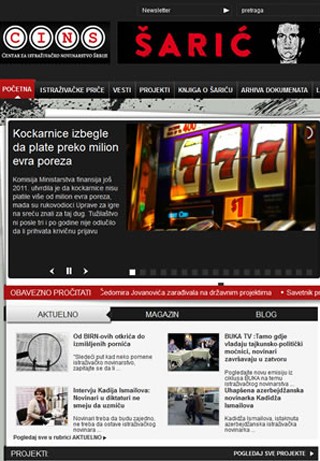
CINS Some media and authors characterize the publication of the official BIA notes of the meeting on Jelova Gora exactly as the participants of the controversial meeting do that – that it is a forgery, or a document only aimed at postponing the trial of Darko Šarić. After releasing the notes to the public, their entire content was not published but only the sections based on which the conclusions can be drawn for the purposes of justifying and defending the representatives of police, prosecution and BIA. The atmosphere is created that BIA plants to the court the incomplete and forged documents. Should that, however, turn out to be true, it will result in a far larger issue, which goes beyond the trial of Darko Šarić, or brings into question the entire legal system but also the state security. For certain authors and the media this does not seem to be a problem, and they do not at all deal with the consequences of the statements they make, but are only focused on attempts to distract the attention from the fact which in the BIA notes point to the responsibility of the participants of the controversial meeting on Jelova Gora. They claim that it will only be the crucial evidence of conspiracy of Šarić’s attorneys-at-law, who are, in agreement with BIA, engaged in postponing the trial and probably freeing Šarić.
CONCLUSION
The meeting on Jelova Gora points to the following: Prosecution, police and the then highest officials of BIA make a series of failures in an attempt to arrest Darko Šarić. The official BIA notes of the meeting give grounds to doubt regarding the sincerity of their intentions to crackdown the crime and corruption. Even without indicating to that doubt – the members of the state authorities could be attributed the lack of professionalism and incompetence for the job they performed. With generous support of tabloids and other mainstream media, the failures in the operation of the state authorities are concealed, the case Jelova Gora is not presented in a credible way, but the entire case is covered up and blurred. The fact is, however, that the government bears the most responsibility for confusion in the public – bearing in mind that the official state document is concerned, the fact that there is no reactions and reference to the accountability of the key participants in this case. The leaders of the Security and Information Agency, who declassified the documents related to the investigation of Jelova Gora – is the personnel appointed by the Serbian Prime Minister and the ruling party. Why does the current authorities in Serbia avoid to examine and initiate the procedure against the participants of the controversial meeting is a question which has no answer for now.
